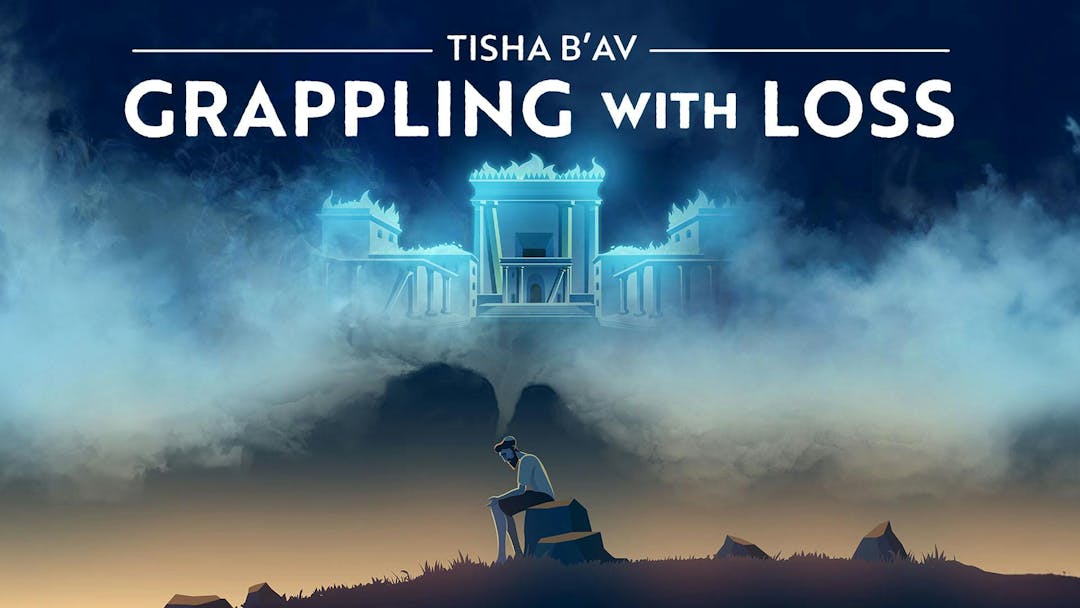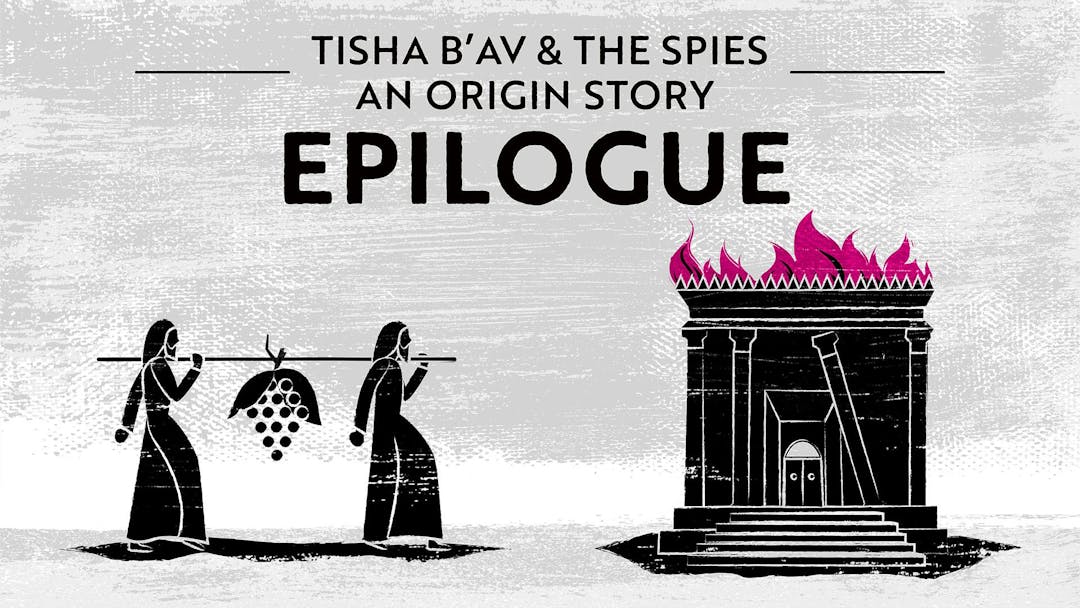Start your free trial today to unlock the full library and enjoy unlimited and uninterrupted access.
Get StartedTisha B'Av & The Spies: An Origin Story (Part 1 of 6)
How The Sin Of The Spies Led To Tisha B’Av
The Ninth of Av, the most tragic day in the Jewish calendar, is known as the day that the Temples were destroyed and many other National tragedies. The Talmudic Sages, however, point to a much earlier event in Jewish History as the first Tisha B'Av: the sin of the spies in the desert. What does that seemingly unrelated event have to do with the destruction of the Temples? And what powerful ramifications can it teach us today on how to bring about the longed-for redemption?
Discover other great Tisha B’Aa’v videos and resources at Aleph Beta, including ‘The Book of Lamentations”, “The Meaning of Sinat Chinam”, and “Tisha B’Ava'v Customs & Rituals”
Want to watch the full video for free?
Enter your email and we’ll send you a link to watch the full series free.
What is Aleph Beta?
Aleph Beta is a unique kind of Torah library. Led by our founder, Rabbi David Fohrman, we are dedicated to high-level, textual Torah learning for adults that is intellectually and spiritually sophisticated, that enlivens your Jewish practice and helps you forge a deeper connection to God. Whether you’ve been learning in yeshiva for years or you’re just beginning your Torah journey, you’re sure to find something meaningful and surprising waiting for you here.
Browse our library of over 1,000 beautifully produced animated videos, podcasts, deep dive courses, and printable guides. Topics include the weekly parsha, Jewish holidays & fast days, laws & mitzvot, prayers, relationships, big philosophical ideas and more. Have something to say at the Shabbos table that will amaze your family and guests and bring deep meaning into their lives.












